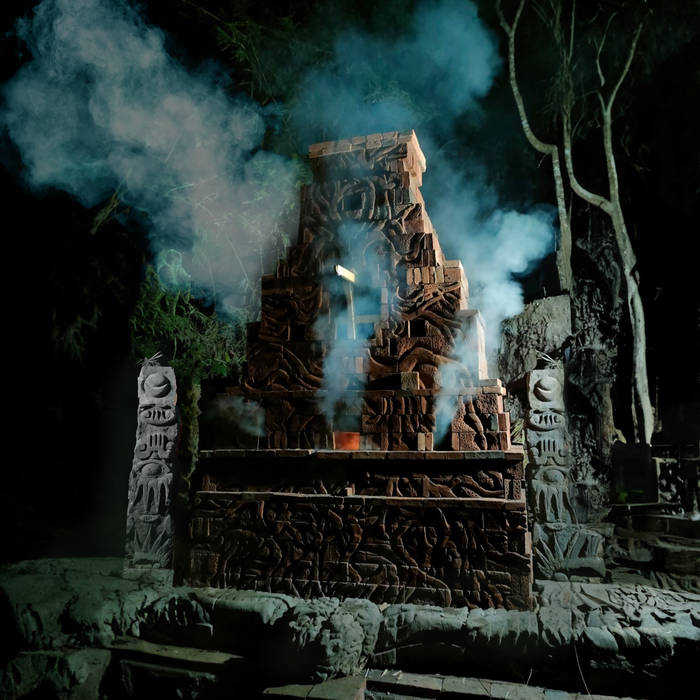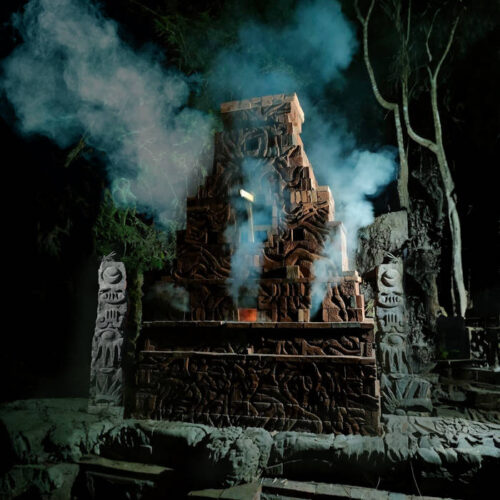Over the past two months, I have attended two festivals whose starting point is metal music: Roadburn in Tilburg and Mystic Festival in Gdańsk. Although they differ in their approach to programming, what I found most interesting about their line-ups were their margins: not among the headliners of the genre, but those artists who boldly seek, experiment, and “define heaviness,” as the Dutch event put it.
Senyawa played at Roadburn two years ago. They stand out with their unique musical style and have perfectly fit that Tilburg festival motto for over a decade. They push the boundaries of musical genres, delving into the search for new means of heaviness, venturing into the further realms of metal and ritual music. Rully Shabara, with his extended vocal techniques, and Wukir Suryadi, exploring the possibilities of traditional instruments, create a startling new quality in their music.
Senyawa’s new album is a masterclass in tension-building. It’s a journey that leads to ritualistic experiences, with subtly constructed lyrical structures on one hand and rapturous, predatory, and trance-like motifs on the other, often based around Suryadi’s homemade bambuwakir, a percussive and stringed instrument, that drives the duo’s music, creating an intense sonic experience.
The album starts with ‘Alnilam’, a heavy, almost mystical suite with a drone undertone, from which Shabara’s monastic chanting builds into hoarse shouts and something resembling the barking of some aggressive animal. Suryadi accompanies him, building first into doomy backgrounds, then against a backdrop of heavy riffs, developing drawn-out string spasms. The following track ‘Vajranala’ has an almost hardcore flavor, with Shabara’s croaks reaching a ritual climax in the finale. Although constructed from entirely different means, this duality sometimes reminds me of Liars’ album Drums Not Dead.
‘Kaca Benggala’ is based on the sound of the luku (a traditional Indonesian plough), which Suryadi has transformed into a giant and careening bowed instrument, resulting in draggy guitar-like riffs played against a background of drones and Shabara’s brittle croons. This is rounded off with the second part of this composition, a ‘ballad’ where Shabara purrs and sings against an acoustic instrumental sound. Somehow a lyrical lullaby melody emerges against a backdrop of mantric bass repetitions, complemented by a black-metal wallop in the final track ‘Hikimah’.
Senyawa’s music is a unique blend of traditional and modern elements. But on Vajranala, instead of synthesis, they extend their musical language by juxtaposing droning passages with rapt, ecstatic motifs, muttering, singing, and shouting. They seek catharsis in new forms of ritual by building this kind of modern heavy ritual in a dense, rapturous sound on the borders of what is traditional, what is metal, what is subtle, and what is rapture, showcasing their innovation and creativity.



